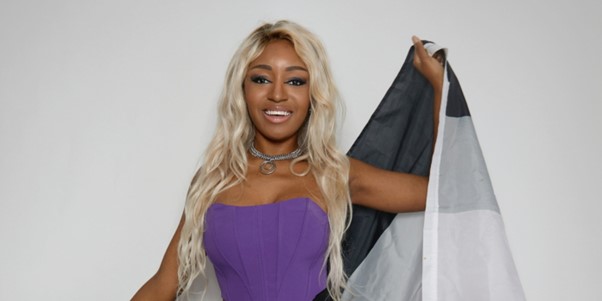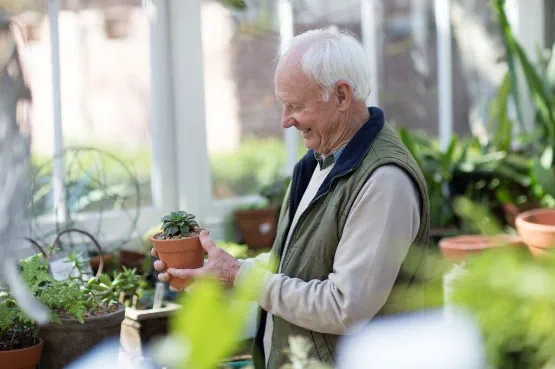What is asexuality?
Asexuality is a sexual orientation that describes people who are rarely or never sexually attracted to others. There are many misconceptions about asexuality, which can come from a lack of understanding about what it is.
In this article, I speak with Yasmin Benoit, a model and asexuality and aromantic activist. She answers some common questions about asexuality and shares her own experiences.

What does asexuality mean?
Asexuality is a term used to describe those who experience little-to-no sexual attraction towards others, regardless of their gender. It exists on a spectrum.
It includes other identities like:
- Greyasexuality: people who identify somewhere between asexual and sexual
- Demisexuality: people who form sexual attraction when they have an emotional connection with someone
- Aromantic: people who don’t often, or ever, feel romantic attraction towards others
Asexuality is a type of sexual orientation and does not relate to someone's romantic behaviour.
How do you know if you’re asexual?
As with other sexual orientations, there is no sure way to know. It's up to you to decide what you want to identify as. I knew I was asexual because the label articulates my experience. I relate to other asexual people, and I’ve spent my whole life not experiencing sexual attraction towards others. It was not circumstantial, it was not caused by anything, it's just how my sexuality is. Some have different journeys or reasons for identifying as asexual.
Do asexual people still have sex?
Some asexual people do still have sex, usually because they are in a romantic relationship with someone who is not asexual. Others might do so for reproduction, or because they still enjoy sex without experiencing sexual attraction, but that is less common.
Is asexuality the same as celibacy or abstinence?
No, celibacy and abstinence are lifestyle choices. Asexuality is a type of sexuality, not something we choose, and it doesn't necessarily mean that you don't have sex. As someone who doesn't experience sexual attraction, there would be no reason for me to consider myself 'abstinent' because I didn't desire sex anyway.
What does aromantic mean?
Being aromantic is a type of romantic orientation. It means that you have little-to-no romantic attraction towards others. There are aromantic people who aren’t asexual, just as there are asexual people who aren’t aromantic. I happen to be both, but I know other asexual people with romantic partners.
Do people choose to be asexual?
No, as it's a type of sexual orientation. It isn't a choice. You might be able to choose how open you are about it and what words you use to describe yourself. But the feelings are not a choice, any more than being gay, bisexual, or straight is a choice.
What is your own experience with asexuality?
I realised I was asexual when everyone else realised that they weren't, so 'early puberty.' I didn't discover the term until I was around 15 and in secondary school. But I wasn't able to use it because people didn't understand what asexuality was. And those who did couldn't identify a black girl as being asexual. So, I remained in the closet and didn't put much emphasis on it until I was already a model and beginning my activism.
What advice would you give to someone’s who’s asexual?
Mainly that it doesn't need to be a big deal. There's a lot of stigma attached to asexuality. People act like you can't have a happy, fulfilling and well-connected life while being asexual, but you can.
It's not a limitation, it's just a different type of experience. Also, other people's negative reactions aren't a reflection of you, it's a reflection of what they don't understand.
Where can you get more information or support?
If you want to find out more about asexuality, there are several websites with some useful information, such as the Asexual Visibility and Education Network.
If you need some support, it can be helpful to talk to someone about how you’re feeling. This could be a trusted friend or family member, or you might want to try counselling. Asexual or LGBTQ+ charities such as MindOut can also link you to the right support.
About our health information
At Bupa we produce a wealth of free health information for you and your family. This is because we believe that trustworthy information is essential in helping you make better decisions about your health and wellbeing.
Our information has been awarded the PIF TICK for trustworthy health information. It also follows the principles of the The Information Standard.

More general health advice articles
Did you find our advice helpful?
We’d love to hear what you think. Our short survey takes just a few minutes to complete and helps us to keep improving our healthy lifestyle articles.
Legal disclaimer
This information was published by Bupa's Health Content Team and is based on reputable sources of medical evidence. It has been reviewed by appropriate medical or clinical professionals and deemed accurate on the date of review. Photos are only for illustrative purposes and do not reflect every presentation of a condition.
Any information about a treatment or procedure is generic, and does not necessarily describe that treatment or procedure as delivered by Bupa or its associated providers.
The information contained on this page and in any third party websites referred to on this page is not intended nor implied to be a substitute for professional medical advice nor is it intended to be for medical diagnosis or treatment. Third party websites are not owned or controlled by Bupa and any individual may be able to access and post messages on them. Bupa is not responsible for the content or availability of these third party websites. We do not accept advertising on this page.







